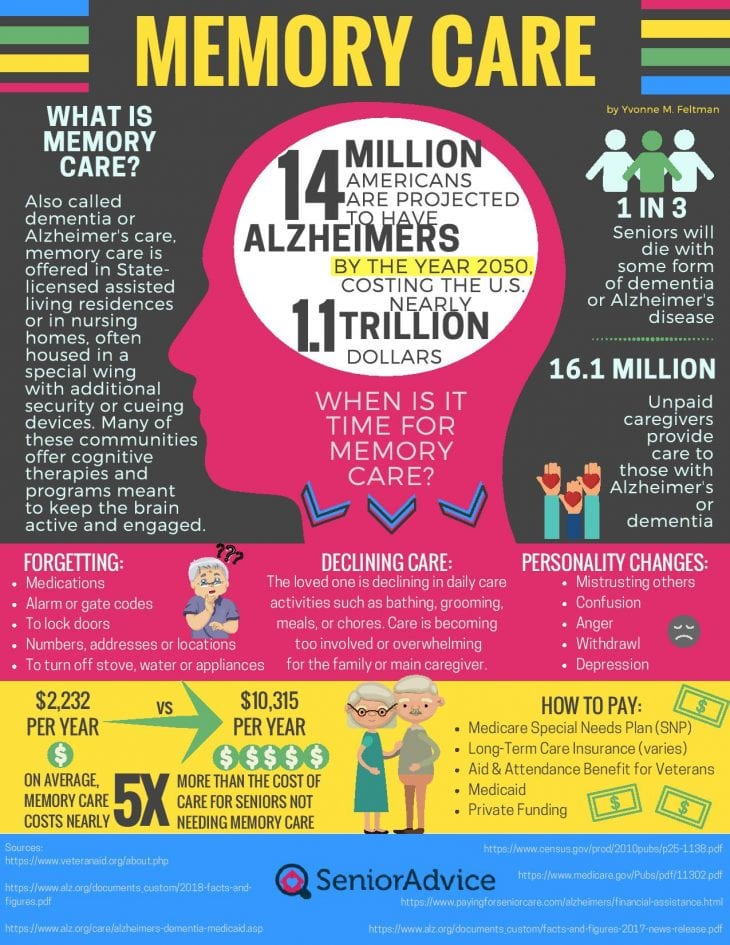There is no denying that Alzheimer’s disease has become an epidemic in our world today. In fact, it is estimated that by the year 2050, more than 14 million Americans will have Alzheimer’s disease—costing the United States more than 1.1 trillion dollars.
The disease is not only a problem for our future but the present as well. Currently, one in three seniors will ultimately pass with some form of dementia or Alzheimer’s disease, and every senior diagnosed with this condition will eventually need some type of medical care to continue living with Alzheimer’s.

source: symphonyseniorliving.com
The good news is, while this unfortunate epidemic can bring about many new challenges for elderly adults, there are memory care facilities and homes available that are dedicated specifically to helping seniors through this difficult time.
For many families, looking to explore their own memory care options may be a whole new experience they are not familiar with—most families have a lot of questions about memory care, beginning with what exactly is memory care? And what does it entail?
Simply put, memory care (also known as Alzheimer’s care or dementia care) is a type of elder care that is offered in state-licensed assisted living residences or nursing homes. Many times, there is a separate building or wing with additional security or other cueing devices that will help prevent wandering. These care facilities also offer cognitive therapies and programs designed to keep the brain active and engaged.
There are currently more than 16.1 million unpaid caregivers today who are providing care to those with Alzheimer’s or dementia. And while this is a selfless act and a big undertaking for many people—it isn’t a possibility for everyone. Not everyone has the time, financial means or ability to act as an unpaid caregiver. And while some friends and family members may start as caregivers, as the disease progresses, it becomes more and more difficult to provide the type of care that most seniors need—which is why professional memory care is so valuable. To know more visit www.courtyards-al.com.

The first step to starting with professional care is knowing when it is time for memory care. This is why another pertinent question that many families have is when is it time to send my loved one to memory care?
Every individual with dementia is different, and every individual will need memory care at a different time in their lives. However, there are a few signs that indicate it is time for a senior to consider memory care:
- Forgetting to take medications
- Forgetting alarm or gate codes and forgetting to lock doors
- Failing to shower, change clothes or engage in regular grooming
- Forgetting to eat meals or to do basic chores
- Changes in personality including mistrusting others
- Experiencing consistent feelings or confusion, anger, withdrawal or depression
These signs typically mean it is time to consider memory care. The final question many families then have is how are we going to pay.

source: rdmag.com
The first and most important thing for families to understand is that it costs about five times as much to care for a senior who needs memory care versus one who needs regular care. There are a few ways to handle these expenses: the Medicare Special Needs Plan (SNP) is a great resource, Medicaid can help, and long-term care insurance is also an option. Seniors who are veterans can sometimes get aid and attendance benefits. However, many families turn to private funding to make sure their senior loved one is getting the care and attention that they need and deserve.
